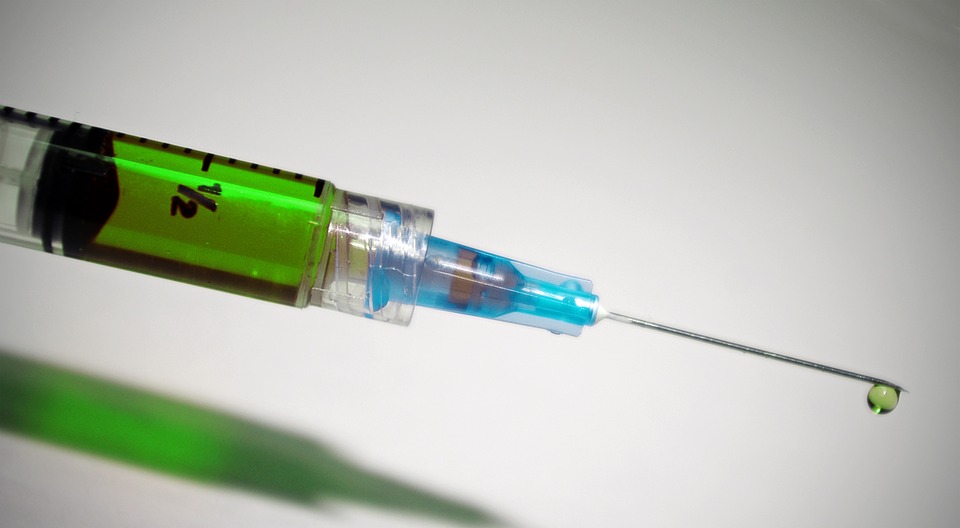Critical thinking is a complex system of judgments that helps to analyze information and come up with valid conclusions, create an assessment of what is happening, and interpret it. It can be said that critical thinking is high-level thinking, which makes it possible to question the incoming information. Read the full guide prepared by our essay writers to be better in studies.
Table of contents
- Critical thinking in learning process
- What is a critical thinking essay?
- How to start a critical thinking essay
- Critical thinking essay questions
- Critical thinking essay topics
- Critical thinking essay topic suggestions
- Critical thinking essay example
- Exercises for developing critical thinking skills
Critical thinking in learning process
Critical thinking as an academic discipline is based on the rules of formal logic, theory, and practice of argumentation, rhetoric, and scientific epistemology (a section of philosophy that deals with instruments and limitations of cognitive activity).
Every human being has two ways of thinking: absorbing information (like a sponge absorbs the water) and thinking about information (like sifting through sand). While a person that uses the first way will be trying to remember the given information in detail, the other one will actively interact with the obtained knowledge when it comes to expressing opinion essay or choosing informal essay topics. This doesn’t mean that one way is worse; critical thinking combines these two features.
Developing critical thinking is hard, as it’s easier to take the position of your friends, family, or public opinion. Your friends may think that vaccines badly influence children’s health and you will think the same, just because your friends think so. But if you will study available information about this issue, you can change your mind, or just reiterate the conviction.
A person with developed critical thinking skills will be resistant to manipulations, immune to stereotypes or public opinion – that’s why AI essay writer isn’t the best option for the development of such skills.
The opinion, worked out independently, can surprise you with its unexpectedness, or it may turn out to be generally accepted. You can find out that such conclusions belong to certain researchers or that they have already been stated by rebels that oppose the established dogmas. Such discoveries are particularly true when you come to write my personal statement or write my research paper prompts: Working with different evidence to support your claims, you’ll meet the need to think critically to decide on the sources you can trust.
What is a critical thinking essay?
A critical thinking essay is a type of writing that is aimed to improve your analytical skills. Critical thinking essays should teach the student to carefully read the texts, utilize methodical doubt, find weaknesses in both others and personal arguments, work with concepts, and clearly and reasonably express thoughts. The basis of a critical thinking essay is to ask and answer the right questions. Tutors usually pay attention both to the quality of the text and how a student develops arguments about a certain issue. In any case, you will be sure that you have your own position based on your own research and conclusions.
Essay writing is one of the best exercises to help improve critical thinking skills. This will help you learn how to effectively work with information, structure it, filter out questionable data, make conclusions – simply everything connected with critical thinking. For example, critical thinking in essay writing will help nurses analyze their experience, reflect on a situation, solve problems, and make the right decisions in a new situation.
Fortunately, critical thinking is not an organ that can atrophy. If you think that you have low critical thinking skills, you always have a possibility of improving it on your own, or apply for paper writing help to professionals.
How to start a critical thinking essay
Every text needs structure and focus, and consistent guidelines can help you consider all valuable points of a critical essay. That’s where a “write my essay online” request might help: You’ll get a detailed plan of your future paper by paragraphs to know what to include in every chapter. As every piece of academic writing, critical thinking essay format consists of an introduction, several body paragraphs, and conclusion.
- Choose a central problem or argument. At college you may be asked to critically analyze essays, articles, controversial opinions, literature, etc. If you will have a chance to pick a topic by yourself, make sure that it is interesting for you and that there is plenty of information that you can read about it. Make sure that the topic is not too difficult and you will be able to come up with basic arguments.
- Gather information and recall to existing knowledge. What do you already know about the topic? If your topic is analyzing a certain text, you will need to read it attentively and point out the main issues. Before you will start reading, make a list of questions that you can consider while reading. Also, a good idea is to take notes as you read and briefly write your own thoughts.
- Come up with a thesis statement. (It’s a must-have element of every academic paper, whether you work on write my assignment, write my coursework, write my dissertation requests.) This means that you need to come up with a central focus of your paper. A good thesis statement gives you the aim that you need to achieve in the body paragraph.
- Write the body paragraph. To write this paragraph, you will need to make several actions like analyzing the material. Maybe, you have some notes with ideas that you have come up with during writing, but for writing you need to make a profound analysis.
- Analyze the information. What evidence, arguments, and claims have you found? Identify weaknesses and strengths, pointing out important relationships.
- Examine different viewpoints. For critical writing it is a crucial part, as it will be a mistake to consider a particular viewpoint to be obvious and undeniable. Such approach requires to examine and evaluate scholarly opinions about the topic.
- Review contexts. Does the author try to approach the topic from an ideological perspective? Consider the fact that your own interpretation may be influenced by your culture, ideology, and other biases.
- Come up with your own viewpoint. It is advisable to create an additional section or subparagraph dedicated to your opinion. You can imagine that you are a participant of discussion and your task is to explain your opinion with evidence. Remember that you should avoid pronouns like “I” and “my.” This rule works for all “write my APA paper” prompts.
- Come up with conclusions. How can you evaluate your own findings? Briefly sum up the ideas you came up with in an overview. Define the importance of your findings and point out the directions that need further research.
Critical thinking essay questions
Do we often think about the role that questions play in our lives? You won’t be able to master critical thinking skills without asking the right questions.
Common questions for critical thinking usually start with who, what, why, where, and when. The right questions will help you think deeply about the context: causes and consequences, analyzing different data, and finding evidence to explain your point. (Feel free to check the Rogerian argument essay example by our experts to better understand what’s meant here.) The following questions prepared by our college paper writing service are aimed to help students to promote critical thinking while writing essays.
Questions about change.
– How has A become a turning point for B?
– How has X transformed to Y?
– What are the consequences of A?
– What is the starting point of Y?
Questions that ask for an evaluation.
– What factors have influenced the decision?
– How would the opponent critique this idea?
– How would a supporter defend the decision?
– How can the decision be applied in other conditions?
– What factors have led to unusual consequences?
Questions that ask for rationale and evidence.
– What could be an example?
– Are these justifications adequate (suitable, sufficient)?
– Why do you think this is true?
– What led you to this belief?
– Do you have any proof for this?
Questions that ask for synthesis.
– How can this be compared?
– Which option is better?
– What is the benefit of this decision?
– What is the value and importance?
– What can I recommend?
– What is better to think about?
This structured approach reflects the process that is governed by critical thinking. These questions allow us to challenge traditional thought processes and help to find new solutions.
Critical thinking essay topics
When you need to pick a topic for a critical thinking essay on your own, it can be a daunting task. Our paper writing service experts created a list of topics with suggested questions and ideas that will boost your writing process.
- Should insurance cover illnesses resulting from drug addiction?
Analyze several articles related to the topic over the internet. Mark several citations that you can cite in your essay. What is your personal attitude to people that take drugs? What is your own point of view about the topic? Write the essay from the perspective of your point of view and support it with citations from sources.
- What were the causes of the currency crisis in Russia?
Find relevant internet sources and analyze the origins of this crisis and its resolution. You might want to assign us with “write my college essay” task on this topic to get a professional and unbiased (which is supercritical in the times of ongoing Russian invasion of Ukraine, when most sources choose the “it’s not all that clear-cut” position) analysis and assessment of the situation. Has the International Monetary Fund provided intervention? Has the crisis ended? How did the Russian economy react to the conclusion?
- What differences and similarities do social welfare institutions in USA and China have?
First, briefly describe the overall development of social welfare in the context of culture and history. Compare the development of social welfare institutions in US and China. How has the poverty reduction policy influenced the situation in China? Discuss the current situation in US and China, focusing on the US social policy. Connect the relationship of poverty reduction and development of welfare institutions in China.
- Write a critical reflection about growing up, analyzing a personal experience.
Think about yourself when you were a child. What qualities have you obtained? What qualities have you lost? Why? What factors have influenced your development? Sum up your experience and how it has influenced your personal traits.
- What effects do leaders and managers have on employees?
What are the qualities of leaders in organizations? Does being a leader mean to have some sort of power? Is the statement “the more power the better” true? What tools do organizations use to manipulate the employees? How can the leader avoid being corrupted?
- Is the Affordable Care Act a good decision?
Write your own overall opinion about the Affordable Care Act. What are weaknesses and strengths of this Act? Develop your own opinion, considering the fact that the Affordable Care Act will require many people to buy insurance or pay a penalty. Are you ready to purchase insurance or get a fine? What would you prefer? Have you ever used health insurance? Do you see any sense in it? Why?
- Can drug testing of employees be treated as an infringement of personal privacy?
Nowadays, drugs have become a part of life for many people. When a company wants to hire a professional, managers want to be sure that the employee will be reliable and peaceful. Why do companies provide drug testing? How does this testing influence the relationship between worker and employer? What types of drug testing is common in companies? How does drug addiction influence the efficiency of the worker?
- How can schools encourage students to develop meta-cognition and critical thinking?
First, you should describe what is the essence of critical thinking and meta-cognition. How can all these skills be helpful for students at school and further in life? What practices should schools implement in programs? Are there any working exercises students can practice on their own?
- How can managers influence successful employees to behave in a certain way?
It is pure luck if you have a productive and brilliant employee in your team. Imagine that you have some controversial issues that this employee cannot agree with or his or her behavior is wrong in some way. What psychological strategies exist that can change behavior?
- Why is Apple marketing special?
You can pick several products and analyze the ways marketers use to promote particular products. What strategies do Apple marketers use? How do they introduce new categories of products? Can these methods be implemented in other companies? How?
- How have modern trends for healthy eating influenced the food industry?
Pick a company that successfully adopted a healthy eating policy for their own goods. Has the company succeeded in it? Has it worked? For example, we can take McDonald’s with a milk-free latte and soy hamburgers. Are these products popular? How does the company promote this subcategory of goods?
- What is the importance of critical thinking in academic writing?
First, you will need to collect some information about the topic from articles, your own experience, interviewing, observing, and come up with your point of view. Think about a list of things a good academic writer must do to become a successful writer. Why is it important? How can it be achieved?
- Can microaggressions be more than racial bias?
What is microaggression? Make research of available sources and determine the forms of microaggression and discrimination. This topic may perfectly fit your “write my term paper” request for our essay writing experts. What is the difference between microaggressions in the workplace and sexual harassment? Have you ever faced acts of microaggression in your college, friends group, and media? What type of aggression was it? What can society do to reduce such acts?
- What is the relationship between critical thinking and ethics?
Start with the definition of critical thinking and ethics. What are the steps of the critical thinking process? In what ways can you use critical thinking when studying and problem solving? What ethical lens do you prefer from the Ethical Lens Inventory? Think about how your personal ethical norms influence your decisions. How does ethics generally influence societal and professional responsibilities?
 Photo by Kat Stokes from Unsplash
Photo by Kat Stokes from Unsplash
Critical thinking essay topic suggestions
If you still cannot choose a topic, maybe you will find it from these critical thinking essay questions and write my PowerPoint presentation subject matters:
- What effect does violence in the media have on young children?
- What are the causes of unhappy marriage?
- What is the nature of the employment relationship involved in the various areas of the “gig economy”?
- Critically analyze the following statement from the Marxist perspective: “Defining criminals as animals and misfits, as enemies of the state, provides a justification for incarcerating them in prison.”
- How does science as a practical technique transform human lives? What dangers does this transformation pose to humanity?
- Is solitary confinement cruel and unusual punishment?
- What is the nature of politics? Consider its influence on public opinion, political parties, interest group activity, and political socialization.
- Why has the global supply chain emerged? Why does it matter? What perspectives does it have?
- Do nurses who receive anti-bullying education experience less bullying?
- How do writers influence readers? What approaches do they use?
- What status and rights does a female worker have in Japan?
- What differences are between the burden of proof in a criminal trial and a civil trial?
- Critically analyze your favorite film or soap opera.
- How have gender stereotypes influenced Asian American identities?
- Do Shakespeare and Montaigne agree on how a person should react to misfortune? Why or why not?
- Critically analyze Steve Jobs’ commencement speech. Is it logically structured? What powerful moments does it have?
- What are the best ways to eliminate domestic violence? What countries have resolved this issue?
- Is sexual addiction a “biopsychosocial” phenomenon?
- Should assisted suicide (by the request of the patient) be illegal? Why or why not? If you agree, what methods of punishment should be applied? If not, describe your position in detail.
- What are advantages and disadvantages of being a vegan?
Critical thinking essay example
The best way to learn is to learn from examples. You will significantly improve your writing skills if you combine practical advice with a sample. One of the critical thinking essays examples that you can read below was written by a professional writer to show you how this type of essay may look. Let’s check it right away!
What Are the Scientific Causes of Happiness?
This essay will discuss the meaning of happiness and whether there is a scientifically proven method to reach happiness.
Humanity has always been interested in happiness. This term has many definitions and many approaches to modern positive psychology. From the scientific point of view, happiness is a chain of chemical processes in the body, as a result of which a person is saturated with “happiness hormones.”
Dfarhud (2014) research has shown that happiness depends on many brain chemicals: dopamine, oxytocin, serotonin, endorphins, cortisol, and melatonin, which can create happy feelings. No specific approach can keep chemicals on the level that brings happiness. According to this study, we can conclude that the assessment of subjective happiness and satisfaction is a complex system, and needs a balance of interactions and counterbalances.
According to Sato (2015), if a person is satisfied with life and often experiences positive emotions, the amount of gray matter in the parietal lobe on the inner surface of the cerebral hemispheres increases in the ancestral part, which is responsible for consciousness and memory. Scientists suppose that happiness can be achieved through meditation and training which, according to studies, increase the mass of gray matter in the parietal lobe of the cerebral hemispheres.
Research by Lyubomirsky (2005) has shown that thoughts can influence the balance of hormones and chemicals. That means that with positive thinking a person generates and reinforces new synapses in the brain that subsequently increase brain functions. But this cannot be applied to those who already are in depression or under certain circumstances that reduce the ability to think positively.
Many neurological articles promise to say something about happiness, but in fact, tell about the remuneration. Psychologists and scientists still have no universal recipe to become a happy person. There are various screening tests to identify the level of happiness, but the problem is that they are quite subjective. Along with brain reactions, happiness also depends on genetics, character, underlying brain systems; it is impossible to influence at a certain brain area or give a pill and make a person happy. The main aim of a scientist shouldn’t be happiness as a whole, but how to use psychic mechanisms and activities that can raise the overall subjective level of happiness.
References
Dfarhud, D., Malmir, M., & Khananmandi, M. (2014). Happiness & Health: The Biological Factors – Systematic Review Article. Iranian Journal of Public Health, 43(11), 1468–1477.
Lyubomirsky, S., King, L., & Diener, E. (2005). The benefits of frequent positive affect: Does happiness lead to success? Psychological Bulletin, 131(6), 803-855.
Sato, W., Kochiyama, T., Uono, S., Kubota, Y., Sawada, R., Yoshimura, S., & Toichi, M. (2015, November 20). The structural neural substrate of subjective happiness. Retrieved from Scientific Reports: https://www.nature.com/articles/srep16891
Exercises for developing critical thinking skills
Critical thinking will not only improve the way you write an essay and do research. It will help you to make the right decisions in your everyday life and analyze situations you face at university and work. Practice at least one of the exercises and you will definitely feel the benefits of thinking critically.
1. Create a journal.
Get used to writing down your thoughts dedicated to a certain topic. Change it, for example, every week. You can follow this format:
Situation. Describe the situation in detail and from various points of view: scientific, logical, and emotional.
Your reaction. Describe all of your emotions caused by the situation.
Analysis. Think about the situation and try to find out what has happened and why. Try to get to the bottom of it.
Evaluation. Try to evaluate the text you have written above. What can you do to improve your way of thinking? What misconceptions have you mentioned?
2. Set the list of goals for the week.
You can list the abilities you want to develop. Accuracy, precision, clarity, logical thinking, etc. That means that you should concentrate on these abilities in all everyday activities. For example, devote one week to concentrate on what you say and how you say it. At the end of the week you can sum up your observation and make improvements in the following week.
3. Pick an interesting topic or issue.
Find an interesting topic that you want to learn. Along with your everyday responsibilities, leave from fifteen to thirty minutes to read information about the chosen topic. This means that every day you will be reading about different points of view about the problem. You can also place the write my paper for cheap order on your chosen topic and read everything about it in one document. Your task is to doubt the information and check whether it works or not.
4. Practice mind mapping.
Mind mapping is a great tool that you can use to increase your brain power and perceiving information. Research has shown that mind maps accumulate both left and right brain capacities. Mind mapping can help you summarize information, come up with questions, and increase comprehension. For example, you can create a mind map during one lecture in your college or just listen to any educational video over the internet.
Take a piece of paper and put the main idea in the center. Draw the branches starting from the top right corner and move in a clockwise direction. Each branch will represent keywords (subheadings of the topic). It is recommended to use different colors to group ideas, so it will be easier to encode your mind map later.
Critical thinking is just a way to think with your head, questioning any, even the most interesting ideas. Of course, critical thinking won’t solve all your problems, but it’s a good habit. And the more you think, the more effectively you will work, learn, communicate, and generate creative ideas. In conclusion, there’s nothing more to say but, each of us is free to choose in which world he or she should live – a colorful, multidimensional world or a flat, black-and-white world.










